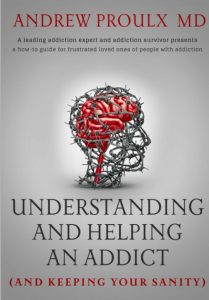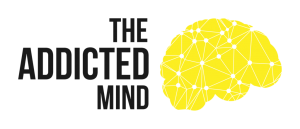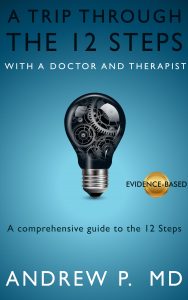Understanding and Helping an Addict (and keeping your sanity)
Watching someone in the throes of addiction to alcohol or drugs is frustrating.
They get worse and worse, and change more and more with every new low. They don’t seem to care about anything beyond drinking and using. They don’t even seem like the same person anymore. What happened?
They start to lose more and more in life as they progress in their addiction: money, savings, relationships, job, home, even their children and family. They hurt those around them, push them away, and make themselves sick.
So why don’t they just stop? Don’t they love their kids enough to stop? Or their spouse? Don’t they care about their job, or house, or savings? Don’t they care about their own health or life?
They’re sick and miserable all the time, so why don’t they just stop???
Therein lies the frustration. There’s no logic to addiction and the thoughts and behaviors of the addicted mind, so there’s no way for a rational person to understand it. This is why they say that only an alcoholic or addict understands another alcoholic or addict. However, when we break down the science of addiction – how repeated substance use changes the brain and mind – it begins to make sense.
Only by understanding the behavior of a person caught in addiction can we help move them to readiness for recovery, and help them along in their recovery. If we lack that understanding we risk alienating them and driving them away from us with what amounts to – in their eyes – “nagging.” Even worse, addicts are expert manipulators, and our attempts to help the addict may soon turn into enabling the substance use.
Here are some suggested articles to get you started:
“I’m Overwhelmed” (Click Here)
“Barriers to Recovery from Alcoholism / Addiction” (Click Here)
“How to Help an Alcoholic or Addict” (Click Here)
What about you?
OK, that’s the alcoholic / addict, but what about those affected by their behavior? Family, friends, loved-ones – those who care the most – bear the brunt of the lies, deceit, theft, loss of property and friends and job. Not to mention the pain of watching someone they care about deteriorate mentally and physically into someone unrecognizable. Or watching them die.
Alcoholics and addicts are people who’re very sick. And they make those around them sick with their behaviors. So, as a doctor and therapist I believe we miss the mark when we put all the focus on helping the addict / alcoholic and ignore the loved ones. Being on the receiving end of the ordeal is a prolonged traumatic event.
It’s helpful to understand the alcoholic / addict and what they’re going through and why they behave as they do and how to help them, but there must be some focus on healing the trauma of prolonged exposure to the constant worry, highs and lows, and incomprehensible change in personality of an addicted loved one.
I recommend support groups that are based on helping those affected by addiction, groups such as Al-Anon and Alateen.
If you’d like to know more about why your loved one has become like they are, and how you can help them, please consider checking out my best-selling book:

Most people who try to help an addict become too involved in the problem, which may do more harm than good. They get drawn into the addict’s circle of chaos, and end up participating in the addiction by being enablers. This creates chaos and insanity in their own life, and does nothing to stop the addiction. They mean well, but they don’t know what to do to help.
Introducing “Understanding and Helping an Addict (and keeping your sanity),” the best-seller from Recovery Folio Publishing, now available on amazon.com (click here).
In this important book, medical doctor and addiction survivor Dr. Andrew Proulx – a leading expert on addiction psychology – explains the effects of addictive substances on the brain and mind, and why addicts and alcoholics behave the way they do.
Dr. Andrew then goes on to explain exactly how form a bond with an addicted loved one and to use this bond to help the addict to move to a willingness and mental readiness to accept the help they need. He then explains your role in your loved one’s treatment and subsequent recovery and relapse prevention.
Dr. Andrew provides guidance for loved ones of addicts to remove themselves from the addict’s circle of chaos and to take a different approach to helping the addict that’s more informed and also allows them to take back their own life and sanity.




